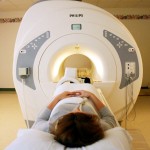Obamacare's Tax on Healthcare Innovation
 Taxing medical devices may help raise revenue to pay for Obamacare, but it will also also stifle the health innovations needed to cut health costs.
Taxing medical devices may help raise revenue to pay for Obamacare, but it will also also stifle the health innovations needed to cut health costs.
The candidates in Pennsylvania’s Senate race have been debating whether healthcare equipment manufacturers should pay a 2.2% tax to help fund Obamacare. Obviously there needs to be new revenue to pay for the 30 million new enrolees in the scheme. But should any impediments be placed in this highly competitive and highly innovative engine of American industry? From a medical perspective it is a terrible idea. For all the loose talk by the president about how his healthcare reforms will lower the cost of care, the real innovations that reduce healthcare costs are technological ones.
Let's consider just one example where innovative use of CT scans has dramatically reduced the cost of care: the diagnosis of appendicitis. In the past, as there was no definitive way to be certain that a patient with unexplained abdominal pain did not have appendicitis, surgeons performed operations when there was any doubt regarding the diagnosis. This approach led to 20 to 30% incidence of unnecessary operations for appendicitis in women. Now with sophisticated CT scans, the incidence of such unnecessary surgeries is about 5%.
This kind of dramatic advance simply cannot occur unless there is a vibrant industry that is willing to take risks with its research and development programs. Furthermore, these companies depend on their profits for the cash to underwrite innovative technological programs.
A recurring theme of Obamacare is that the billions of dollars needed to fund this behemoth will come from efficiencies to be achieved through some magical wishing or through a central command post that will approve or disapprove of all sorts of medical therapies. The magical thinking comes from the portion of the bill that anticipates cuts in the cost of Medicare through the sort of productivity improvements seen in other sectors of the economy but not yet seen in healthcare. Believe it or not, this is the basis for about one-half of the proposed reduction in Medicare outlays.
The right reform of healthcare needs to be a program that focuses on reducing the cost of healthcare and not one that aims to simply tax more or charge more. This is throwing fuel on a fire that is already out of control.
The key is not to stifle innovation by taxing the creators of new healthcare technologies but rather to encourage their advances in creating more effective tools. Healthcare reform requires more, not fewer, technological advances. If the president and his minions feel that tackling waste, fraud and abuse is the key to controlling costs, then improvements in technology are the path to achieving those goals.
To answer the question, "Who should pay for Obamacare?": Not primarily the people who provide the best real hope to lower future healthcare costs. If the public feels that all Americans are entitled to the comfort of knowing that healthcare insurance is available and affordable, then the whole nation needs to own this new cost.